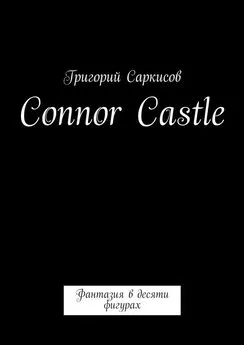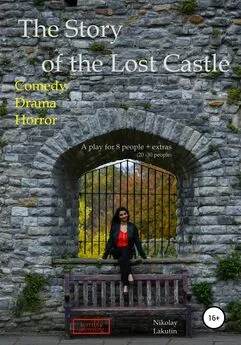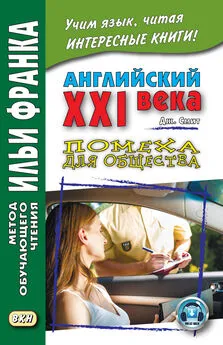Dodie Smith - I Capture the Castle
- Название:I Capture the Castle
- Автор:
- Жанр:
- Издательство:неизвестно
- Год:неизвестен
- ISBN:нет данных
- Рейтинг:
- Избранное:Добавить в избранное
-
Отзывы:
-
Ваша оценка:
Dodie Smith - I Capture the Castle краткое содержание
I Capture the Castle - читать онлайн бесплатно полную версию (весь текст целиком)
Интервал:
Закладка:
that the man would be handsome, romantic and lovable into the bargain.
I suppose it was her sheer despair of ever meeting any marriageable men at all, even hideous, poverty-stricken ones, that made her suddenly
burst into tears. As she only cries about once a year I really ought
to have gone over and comforted her, but I wanted to set it all down
here. I begin to see that writers are liable to become callous.
Anyway, Topaz did the comforting far better than I could have done, as I am never disposed to clasp people to my bosom. She was most
maternal, letting Rose weep all over the orange velvet tea-gown, which has suffered many things in its time.
Rose will be furious with herself later on, because she has an unkind tendency to despise Topaz; but for the moment they are most amicable.
Rose is now putting away her ironing, gulping a little, and Topaz is
laying the table for tea while outlining impracticable plans for making money --such as giving a lute concert in the village or buying a pig in installments.
I joined in while resting my hand, but said nothing of supreme
importance.
It is raining again. Stephen is coming across the courtyard. He has
lived with us ever since he was a little boy; his Mother used to be our maid, in the days when we could still afford one, and when she died he had nowhere to go. He grows vegetables for us and looks after the hens and does a thousand odd jobs--I can't think how we should get on
without him. He is eighteen now, very fair and noble-looking but his
expression is just a fraction daft. He has always been rather devoted to me; Father calls him my swam.
He is rather how I imagine Silvius in As You Like It but I am nothing like Phoebe.
Stephen has come in now. The first thing he did was to light a candle and stick it on the window-ledge beside me, saying: "You're spoiling your eyes, Miss Cassandra."
Then he dropped a tightly folded bit of paper on this journal. My
heart sank, because I knew it would contain a poem; I suppose he has
been working on it in the barn. It is written in his careful, rather
beautiful script. The heading is, ""To Miss Cassandra" by Stephen Colly."
It is a charming poem--by Robert Herrick.
What am I to do about Stephen? Father says the desire for
self-expression is pathetic, but I really think Stephen's main desire is just to please me; he knows I set store by poetry.
I ought to tell him that I know he merely copies the poems out--he has been doing it all winter, every week or so--but I can't find the heart to hurt him.
Perhaps when the spring comes I can take him for a walk and break it to him in some encouraging way. This time I have got out of saying my
usual hypocritical words of praise by smiling approval at him across
the kitchen. Now he is pumping water up into the cistern, looking very happy.
The well is below the kitchen floor and has been there since the
earliest days of the castle; it has been supplying water for six
hundred years and is said never to have run dry. Of course, there must have been many pumps. The present one arrived when the Victorian
hot-water system (alleged) was put in.
Interruptions keep occurring. Topaz has just filled the kettle,
splashing my legs, and my brother Thomas has returned from school in
our nearest town, King's Crypt. He is a cumbersome lad of fifteen with hair that grows in tufts, so that parting it is difficult. It is the
same mousy color as mine; but mine is meek.
When Thomas came in, I suddenly remembered myself coming back from
school, day after day, up to a few months ago. In one flash I re-lived the ten-mile crawl in the jerky little train and then the five miles on a bicycle from Scoatney station --how I used to hate that in the
winter! Yet in some ways I should like to be back at school; for one
thing, the daughter of the manager at the cinema went there, and she
got me in to the pictures free now and then. I miss that greatly. And I rather miss school itself--it was a surprisingly good one for such a quiet little country town. I had a scholarship, just as Thomas has at his school; we are tolerably bright.
The rain is driving hard against the window now. My candle makes it
seem quite dark outside. And the far side of the kitchen is dimmer now that the kettle is on the round hole in the top of the range. The
girls are sitting on the floor making toast through the bars.
There is a bright edge to each head, where the firelight shines through their hair.
Stephen has finished pumping and is stoking the copper --it is a great, old-fashioned brick one which helps to keep the kitchen warm and gives us extra hot-water. With the copper lit as well as the range, the
kitchen is much the warmest place in the house; that is why we sit in it so much. But even in summer we have our meals here, because the
dining-room furniture was sold over a year ago.
Goodness, Topaz is actually putting on eggs to boil. No one told me
the hens had yielded to prayer. Oh, excellent hens! I was only
expecting bread and margarine for tea, and I don't get as used to
margarine as I could wish. I thank heaven there is no cheaper form of bread than bread.
How odd it is to remember that "tea" once meant afternoon tea to us with little cakes and thin bread-and-butter in the drawing-room. Now
it is as solid a meal as we can scrape together, as it has to last us until breakfast. We have it after Thomas gets back from school.
Stephen is lighting the lamp. In a second now, the rosy glow will have gone from the kitchen. But lamplight is beautiful, too.
The lamp is lit. And as Stephen carried it to the table, my Father
came out on the staircase. His old plaid traveling-rug was wrapped
round his shoulders --he had come from the gatehouse along the top of the castle walls. He murmured: "Tea, tea- has Miss Marcy come with the library books yet?" (she hasn't.) Then he said his hands were quite numb; not complainingly, more in a tone of faint surprise--though I find it hard to believe that anyone living at the castle in winter
can be surprised at any part of themselves being numb. And as he came downstairs shaking the rain off his hair, I suddenly felt so fond of
him. I fear I don't feel that very often.
He is still a splendid-looking man, though his fine features are
getting a bit lost in fat and his coloring is fading. It used to be as bright as Rose's.
Now he is chatting to Topaz. I regret to note that he is in his
falsely cheerful mood--though I think poor Topaz is grateful for even false cheerfulness from him these days. She adores him, and he seems
to take so little interest in her.
I shall have to get off the draining-board--Topaz wants the tea-cozy
and our dog, Heloise, has come in and discovered I have borrowed her
blanket.
She is a bull-terrier, snowy white except where her fondant-pink skin shows through her short hair.
All right, Heloise darling, you shall have your blanket. She gazes at me with love, reproach, confidence and humor- how can she express so
much just with two rather small slanting eyes his I finish this entry sitting on the stairs. I think it worthy of note that I never felt
happier in my life- despite sorrow for Father, pity for Rose,
embarrassment about Stephen's poetry and no justification for hope as regards our family's general outlook. Perhaps it is because I have
satisfied my creative urge; or it may be due to the thought of eggs for tea.
II LA-AR. Written in bed.
I am reasonably comfortable as I am wearing my school coat and have a hot brick for my feet, but I wish it wasn't my week for the little iron bedstead --Rose and I take it in turns to sleep in the four-poster. She is sitting up in it reading a library book. When Miss Marcy brought it she said it was "a pretty story." Rose says it is awful, but she would rather read it than think about herself.
Poor Rose! She is wearing her old blue flannel dressing-gown with the skirt part doubled up round her waist for warmth. She has had that
dressing-gown so long that I don't think she sees it any more; if she were to put it away for a month and then look at it, she would get a
shock.
But who am I to talk--who have not had a dressing gown at all for two years his The remains of my last one are wrapped round my hot brick.
Our room is spacious and remarkably empty.
With the exception of the four-poster, which is in very bad condition, all the good furniture has gradually been sold and replaced by minimum requirements bought in junk-shops. Thus we have a wardrobe without a
door and a bamboo dressing-table which I take to be a rare piece. I
keep my bedside candlestick on a battered tin trunk that cost one
shilling; Rose has hers on a chest of drawers painted to imitate
marble, but looking more like bacon.
The enamel jug and basin on a metal tripod is my own personal property, the landlady of "The Keys" having given it to me after I found it doing no good in a stable. It saves congestion in the bathroom. One rather
nice thing is the carved wooden window-seat- I am thankful there is no way of selling that. It is built into the thickness of the castle
wall, with a big mullioned window above it. There are windows on the
garden side of the room, too; little diamond-paned ones.
One thing I have never grown out of being fascinated by is the round
tower which opens into a corner.
There is a circular stone staircase inside it by which you can go up to the battlemented top, or down to the drawing-room; though some of the steps have crumbled badly.
Perhaps I ought to have counted Miss Blossom as a piece of furniture.
She is a dressmaker's dummy of most opulent figure with a wire skirt
round her one leg. We are a bit silly about Miss Blossom-we pretend
she is real.
We imagine her to be a woman of the world, perhaps a barmaid in her
youth. She says things like "Well, dearie, that's what men are like,"
and "You hold out for your marriage lines."
The Victorian vandals who did so many unnecessary things to this house didn't have the sense to put in passages, so we are always having to go through each other's rooms. Topaz has just wandered through
ours-wearing a nightgown made of plain white calico with holes for her neck and arms; she thinks modern underclothes are vulgar. She looked
rather like a victim going to an Auto da Fe, but her destination was
merely the bathroom.
Topaz and Father sleep in the big room that opens on to the kitchen
staircase. There is a little room between them and us which we call
"Buffer State";
Topaz uses it as a studio. Thomas has the room across the landing,
next to the bathroom.
I wonder if Topaz has gone to ask Father to come to bed--she is
perfectly capable of stalking along the top of the castle walls in her nightgown. I hope she hasn't, because Father does so snub her when she bursts into the gatehouse. We were trained as children never to go
near him unless invited and he thinks she ought to behave in the same way.
No--she didn't go. She came back a few minutes ago and showed signs of staying here, but we didn't encourage her. Now she is in bed and is
playing her lute. I like the idea of a lute, but not the noise it
makes; it is seldom in tune and appears to be an instrument that never gets a run at anything.
I feel rather guilty at being so unsociable to Topaz, but we did have such a sociable evening.
Round about eight o'clock, Miss Marcy came with the books. She is
Читать дальшеИнтервал:
Закладка:









